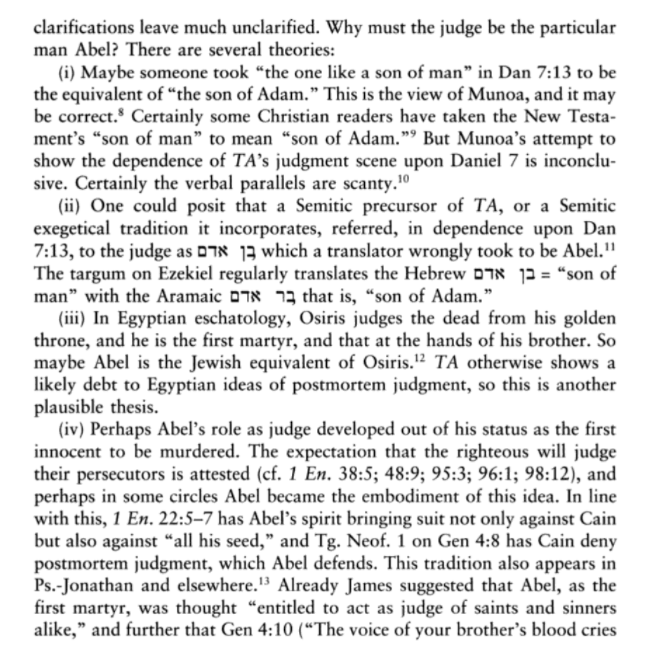Dale Allison disputes Phillip B. Munoa's thesis that the judgment scene in the Testament of Abraham is based on Daniel 7 and that Munoa's "verbal parallels are scanty."
- Type
- Book
- Source
- Dale C. Allison, Jr. Non-LDS
- Hearsay
- DirectSecondary
- Reference
Dale C. Allison, Jr., Testament of Abraham (Commentaries on Early Jewish Literature; Berlin: Walter de Gruyter, 2003), 280-81
- Scribe/Publisher
- Walter de Gruyter
- People
- Phillip B Munoa, III, Dale C. Allison, Jr.
- Audience
- Reading Public
- Transcription
No other ancient text makes Abel an eschatological judge (although Philo, Quaest. Gen. 1.59 speaks of his pastoral work as "prepatory to rulership and kingship"). V. 3 explains that "every man is judged by man," v. 5 that Abel's status as Adam's son qualifies him to judge everybody. The clarifications leave much unclarified. Why must the judge be the particular man Abel? There are several theories:
(i) Maybe someone took "the son like a son of man" in Dan 7:13 to be the equivalent of "the son of Adam." This is the view of Munoa, and it may be correct. Certainly some Christian readers have taken the New Testament's "son of man" to mean "son of Adam." But Munoa's attempt to show the dependence of l's judgment scene upon Daniel 7 is inconclusive. Certainly the verbal parallels are scanty.
- Citations in Mormonr Qnas
The B. H. Roberts Foundation is not owned by, operated by, or affiliated with the Church of Jesus Christ of Latter-day Saints.


